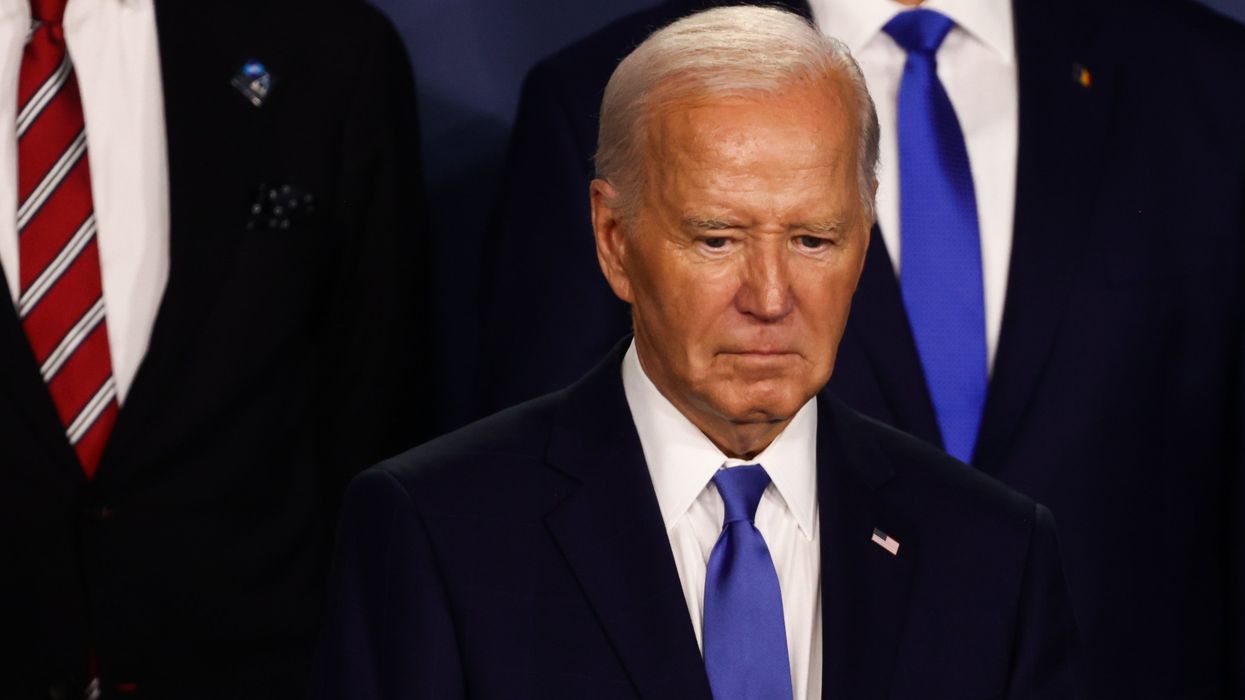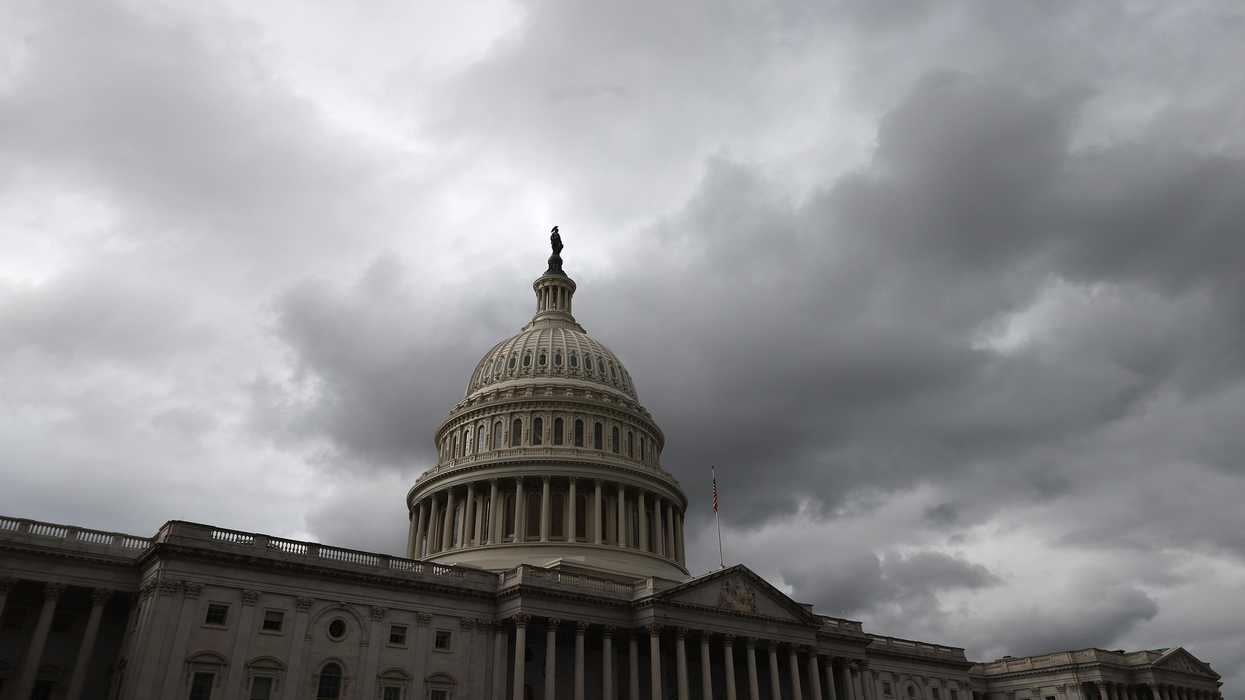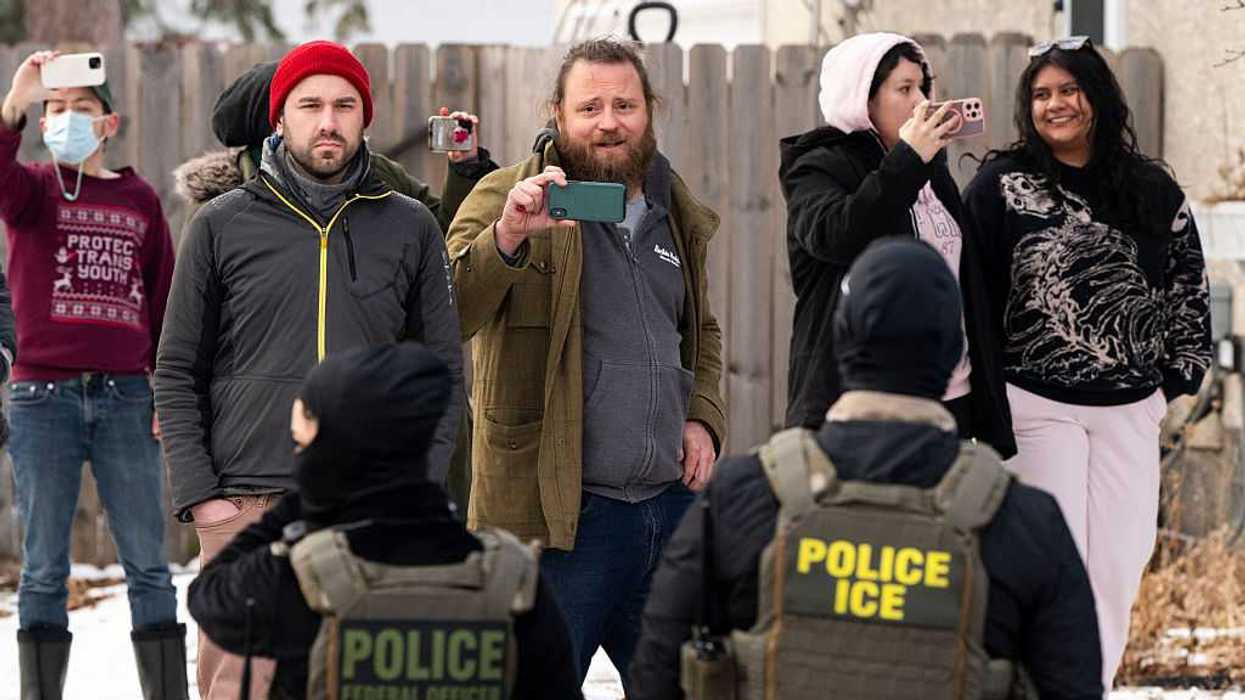Gruber is senior vice president of Open Primaries, a national election reform organization. Opdycke is president of Open Primaries.
This year’s Democratic Party presidential primary was a choreographed affair dubbed “ Operation Bubble Wrap.” The rules were manipulated by party insiders to ensure Joe Biden would face no scrutiny and no competition. The idea that he should stay in the race because he “won the primary” is absurd. There was no primary. By design.
Leaders of both parties have been manipulating the primary election system for years. This year, though, leaders of the Democratic Party went to draconian lengths to shield President Biden from voters. Now, with his cognitive decline on full display, it's become clearer than ever how the current system — which should have revealed his deficiencies as well as his attributes — is not serving the public interest. It’s time for a change.
Primaries were designed to work differently. One hundred years ago, decades of corrupt bossism provoked calls from voters to bring the public in at the beginning of election season. The reformers at the time called these the “people’s primaries.” Today leaders of both parties have structurally manipulated the system to cement their control under the false claim that these elections are “theirs.”
That’s most obvious in the patchwork of closed primaries that shut out independent voters, who are now, at 51 percent of the national electorate, a larger share than Republicans and Democrats combined. Half the states in the union close their presidential primaries to independent voters. As both parties stagnate, an increasingly small number of partisan voters are calling the shots.
But voter access is only half the problem. Equally challenging is the very way primary elections are run. We allow the parties to control the rules of these elections. It doesn’t have to be this way. Most countries hold nonpartisan elections, administered by an independent authority.
The problem with partisan-run primaries was on full display earlier this year, when Democratic Party insiders manipulated the rules in real time to ensure there was no competition. Not only did they anoint Biden and put out the word among the faithful that he was not to be challenged, but when insurgent primary candidates like Robert F. Kennedy Jr. and Dean Phillips began running on platforms questioning the president’s fitness, they changed the rules to marginalize them.
The Democratic parties in Florida and North Carolina canceled their primaries altogether, declaring Biden the winner. The Democratic Party of Wisconsin left Phillips — a sitting member of Congress — off the primary ballot and had to be sued all the way to the state's Supreme Ccourt to add him back. All discussion of primary debates were quickly scuttled. That’s why this year was so different. The Democratic Party didn’t just shut out independent voters, it robbed Democratic Party voters of the opportunity to play a meaningful role in the nominating process.
At the time, none of the elected leaders and pundits that have since called for Biden to leave the race questioned the party’s undemocratic actions. In fact quite the opposite, they piled on their criticism of any challengers — from No Labels to Kennedy. Imagine if Biden had faced a competitive primary. The American public ( including George Clooney) would have had the opportunity to see his limitations as well as his attributes directly and make an informed choice.
Now some of these same leaders are calling for some semblance of a “blitz primary.” As the days wane on, even this Hail Mary approach seems less and less likely, as it’s partisan leaders — not the public — once again who are in the decision-making role.
And that’s the challenge. Presidential primaries don’t select candidates, they select delegates to a convention who will vote on the candidates. And while states have limited the independence of delegates over the years, the very partisan nature of these contests have dissuaded reformers from challenging them.
But challenge them we must. Any trust in leaders of either party running our primaries in the public’s interest, rather than their own evolving interest, is gone. Their contempt for voters — independent and party voters alike — is on full display.
One state — Arizona — is bringing an innovative approach to the problem with a ballot initiative this November that would tie the continuation of public funding to a more open presidential primary process. Let’s take that idea national. These are our elections. We pay for them. It’s time for the American people to regain control of the presidential primaries.




















